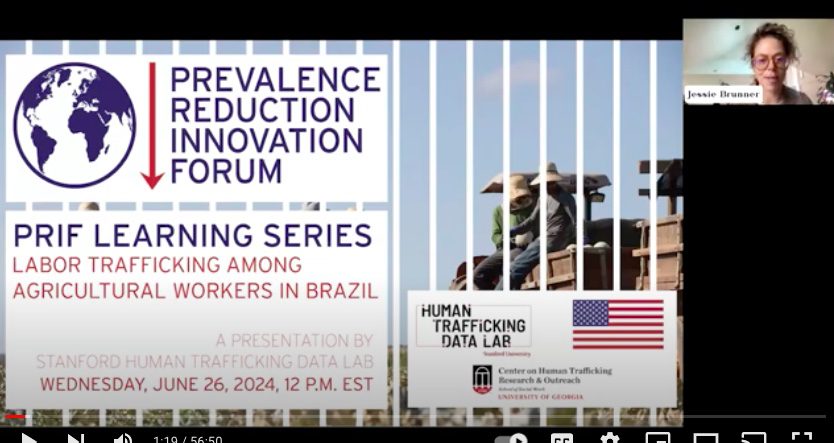
PRIF Learning Series- Labor Trafficking Among Agricultural Workers in Brazil
Researchers from the Stanford Human Trafficking Data Lab presented findings on estimation strategies used to measure the prevalence of labor trafficking among agricultural workers in Brazil.
The Stanford team used two estimation methods – probability sampling proportional to size (PPS) and the network scale-up method (NSUM) – to examine the prevalence of labor trafficking in the agricultural sector across four Brazilian states: Maranhão, Bahia, Piauí, and Tocantins.
